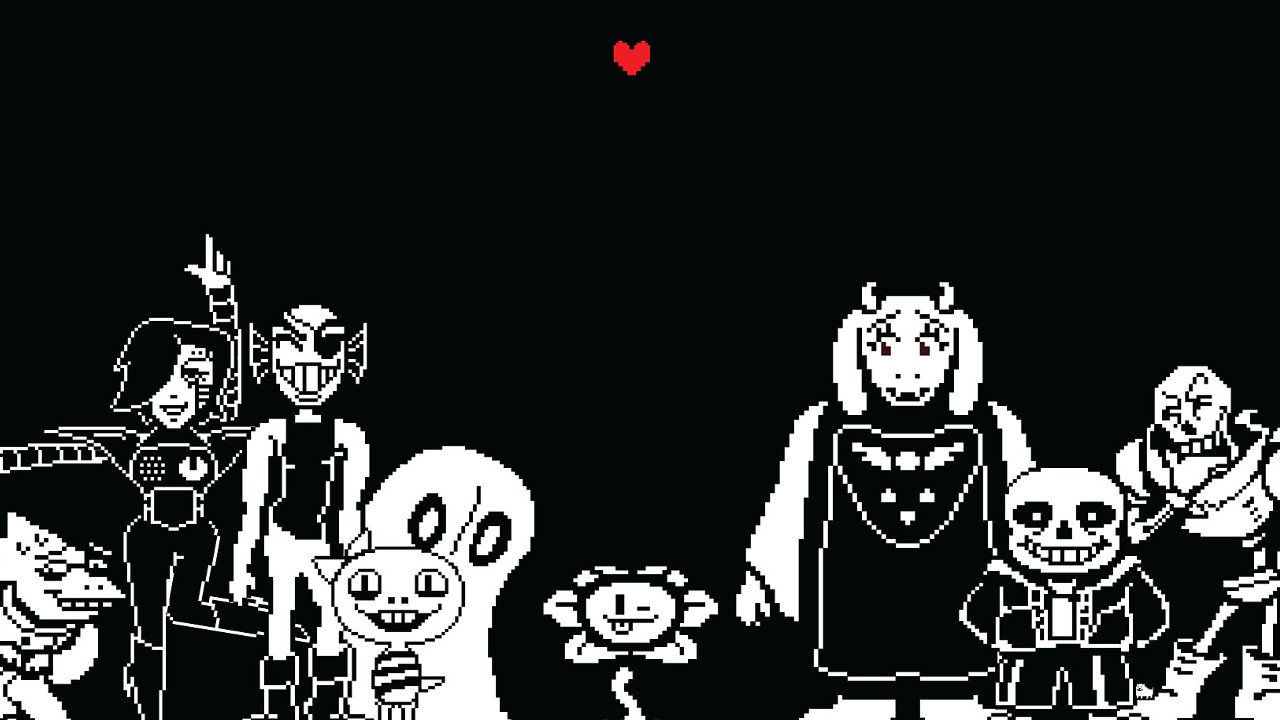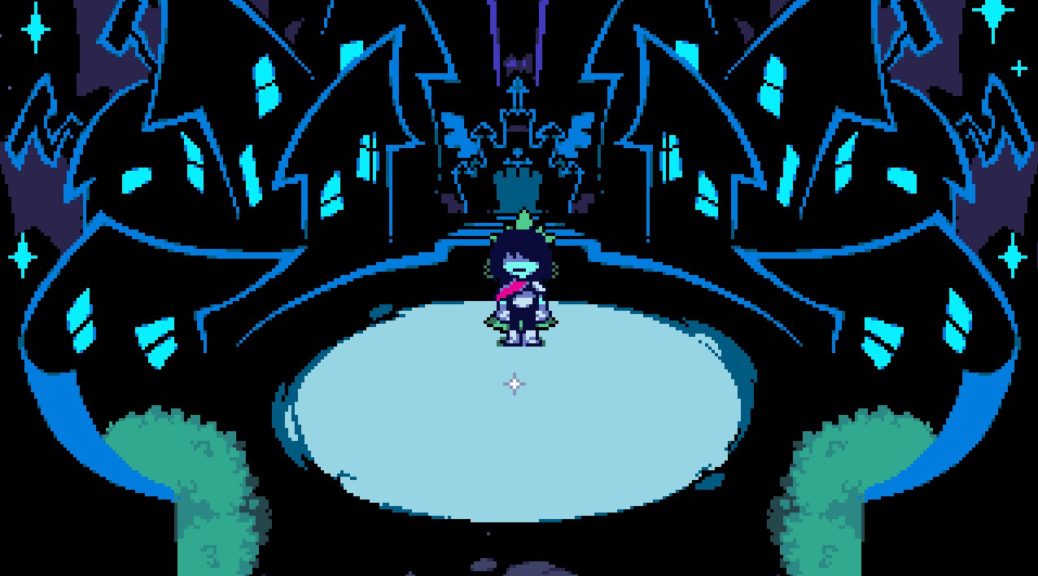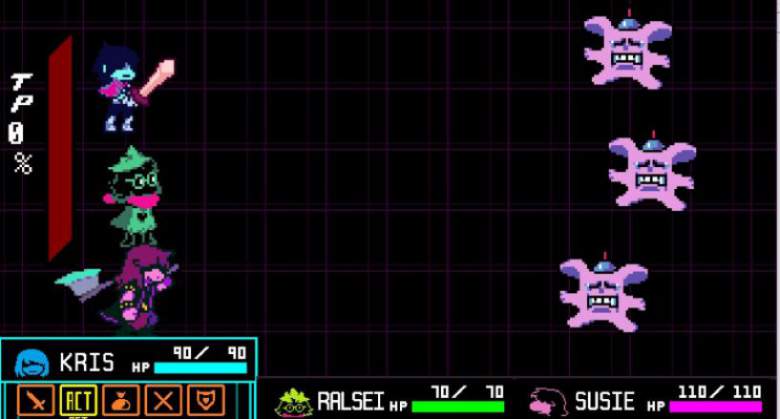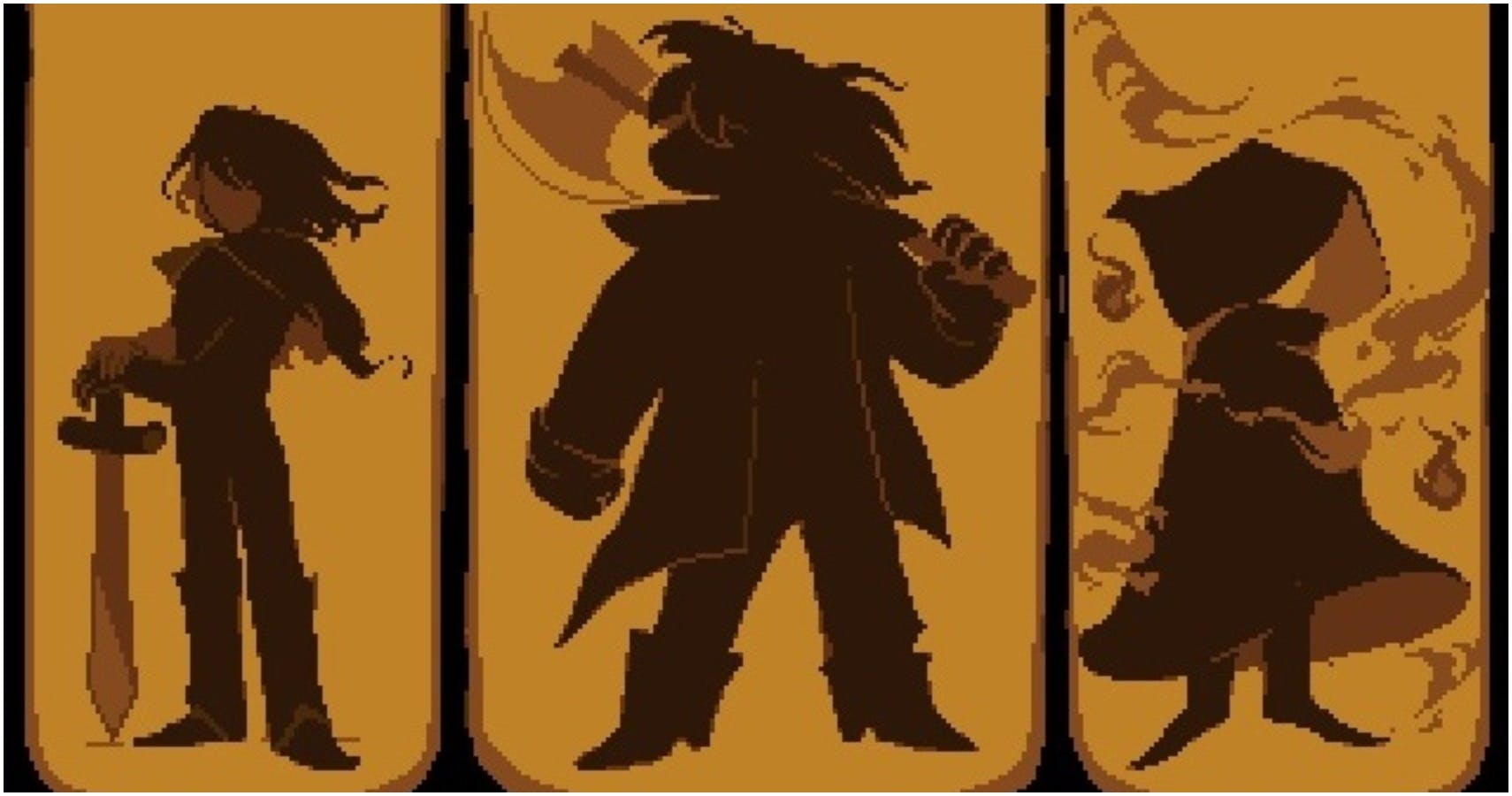
It’s been three years since Toby Fox’s indie hit Undertale took the gaming space by storm, offering a charming and deeply earnest take on the tropes that gamers have internalized over years of conditioning. Instead of bashing endless hordes of monsters to level up like in other RPGs, the game offered the ability to take a pacifist approach. Players could utilize to the ACT system which made it possible to convince opponents to cease their hostilities through non-aggressive actions. Although it was comedic in tone, it conveyed a humanist message through its writing and its mechanics, fully utilizing the medium in a way that is quite rare. Also, the soundtrack, composed by Fox himself, is nothing short of incredible.

While Fox has kept busy porting the game to consoles and aiding in efforts to localize his title in Japan, up until this past Halloween he had been mostly silent on a follow-up. But that all changed when he dropped Deltarune: Chapter 1 for free on his website, the spiritual successor Undertale. While Fox has denied that Deltarune is a direct sequel, the presence of several characters from his previous game, and the fact that Deltarune is an anagram for Undertale seem to point to some plot connection. If nothing else the two are thematically inseparable. While Fox has made it sound like the remainder of Deltarune is a long ways off due to his need to form a team to complete it, that doesn’t mean it should be ignored. There are many hooks built in for a sequel, but the first chapter tells a standalone story that can be enjoyed on its own.
*Minor spoilers*
After a hilarious introduction that balks at the notion of player choice, we are put in the shoes of Kris, the lone human in a town of monsters. Kris’s morning plays out in typical fashion until he and the class bad girl Susie are tasked with retrieving chalk from the closet. As they enter the dimly lit room, the corridor seems to continue without end, and the two are whisked away to a world of darkness. After talking to a prince of this land, it becomes apparent that there was once a balance between two factions, the Lightners and the Darkners. However, the Lightners have long abandoned the Darkners, leaving them trapped in their dingy kingdom. As the prince Ralsei clarifies, the arrival of three heroes can reverse this by sealing a fountain of darkness that pours from a distant castle. From there the three of you set off to set things right. While this premise undeniably shares a great deal in common with Undertale, for now, it’s unclear if there is a more direct connection between the two.
*Minor spoilers end*

Beyond the plot similarities the action-oriented JRPG combat of the original makes a return here, but with a fair number of new mechanics. One large addition is the party system, which allows you to take multiple actions in a turn, elegantly disarming enemies by combining your group’s efforts. Your companions have distinct qualities that add a strategic element to the proceedings. Ralsei’s lovable demeanor matches his role as a healer, and Susie is a bulky tank. A magic system has also been introduced, requiring players to build up TP by Defending and narrowly dodging opponent’s attacks. TP can then be released to perform healing spells or highly damaging attacks. Like in the previous game being on the defensive is defined by weaving a pixelated heart through a barrage of projectiles, making it possible to avoid damage altogether during enemy onslaughts. Different enemy types have different sets of bullet patterns, and being attacked by multiple enemies means these patterns will combine.
The result is an engaging twist on the classic JRPG formula, with defense being a highly skill-oriented affair. As in Undertale you can decide how to dispatch of foes, either using violence or through using the ACT system to placate your enemies with words or deeds. Since only the main character can ACT, and ACTs occasionally require using multiple party members at once, you must plan out your turns carefully. Since Defending is essential to building TP, and using healing spells is essential to keeping your party members alive, there is enough nuance to the decision making to remain engaging over the game’s short runtime. There are other interesting wrinkles, like the fact that Susie will attack your opponents without being prompted, meaning if you aim to make it out without hurting your foes you must pacify them quickly. Although Undertale is one of my favorite games, it exists so high in my personal pantheon more due to the quality of its writing than because of its gameplay. It’s nice that the sequel has added complexity that makes the combat feel like more than just a rehash.

Deltarune also lives up to its predecessor’s narrative, even if its brevity keeps it from reaching the same heights. Beyond just the gameplay drawing greatly from Undertale, the style of the dialogue and general themes from its previous game largely carry over. Similar to Undertale, we have a broadly painted fantastical struggle, which depicts how prejudice and imagined divisions can cause people to do terrible things. The player is placed at the crux of this struggle and given the ability to be a relentless murderer or merciful savior.
Your unthreatening foe Lancer and your two fellow party members make for welcome company while also tying into the game’s core struggle. Susie’s general anger manifests in her desire to slay every monster she sees, while the infinitely lovable Ralsei tries to persuade you to do the right thing. Then there’s Lancer, who takes the mantle of this game’s bumbling but endearing villain. The interactions between these three oscillate between delivering great comedic moments and working as excellent catalysts for the central themes. While one could argue that their arcs are predictable, the frequent hilarity and genuine quality of these characters is the bedrock of this story’s success.

While the first chapter of Deltarune may rely on many of the same concepts that made its predecessor so interesting, like how it addresses the violent nature of the medium through its gameplay, it also boasts the same strengths. The combat system is significantly improved, and in the grand scheme of things, there are very few games that attempt to directly weave their gameplay loops into the philosophy they exude in the same way that Fox’s game’s do. The new characters are as likable as their for-bearers, but there is also plenty of fan service for those who liked the old cast. While I would be hesitant to recommend Deltarune Chapter 1 to those who haven’t played Undertale, for those who enjoyed the infectious optimism and morality of that game, Toby Fox’s latest is a must play. In a medium dominated by carnage, headshots, and an often nihilistic outlook, it’s affirming that we have received a continuation of a series with this much pathos.




